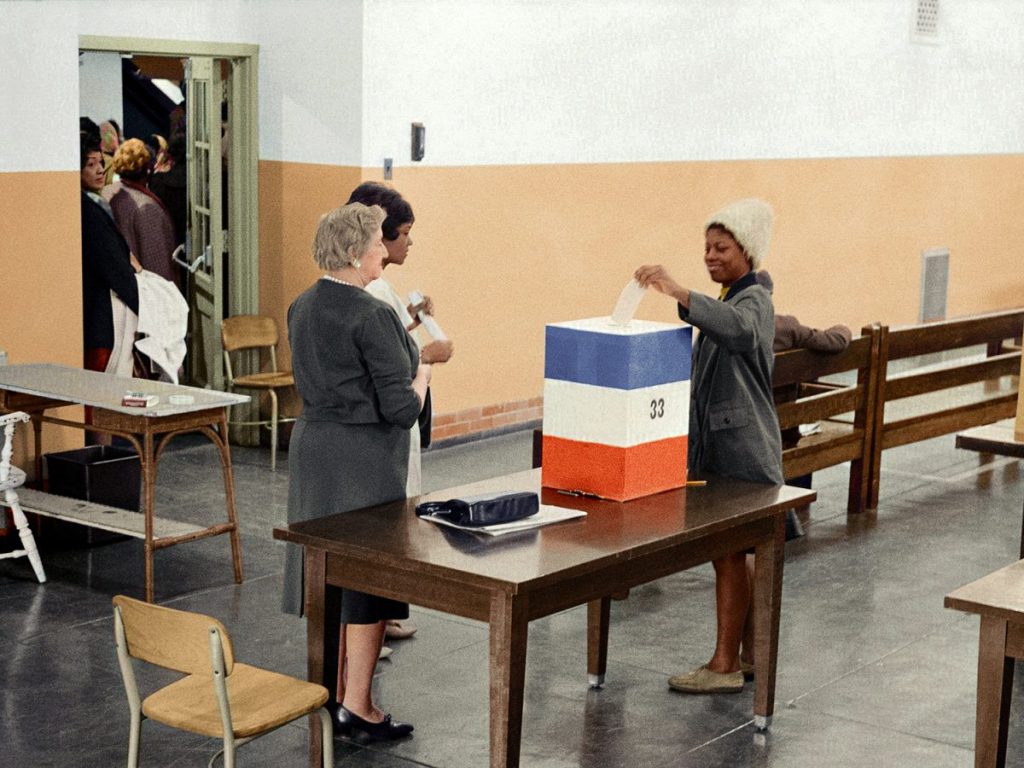By Lori Lee
NDG Contributing Writer
Americans were bombarded with misinformation during the 2024 election, as Russia, China, and North Korea manipulated messaging through social media, Intelligence Committee Chair Mark Warner said in an October Ethnic Media Services briefing. The global interference was even more pronounced than in 2020, as deep fakes and misinformation have grown increasingly sophisticated.
The good news, said Warner, the security of our voting systems, staff, and machinery is quite good. This, despite concerns earlier in the year over election officials abandoning their posts due to security threats.
On election day, officials were well prepared to respond to the bomb threats in battleground states, after training for various scenarios and updating emergency plans, the Associated Press reported. The FBI said the threats originated from Russian email domains, though that doesn’t necessarily mean they actually came from Russia.
Their goal — to undermine American confidence and to gradually diminish U.S. power, according to Emerson Brooking, resident senior fellow at the Atlantic Council’s Digital Forensic Research Lab, which tracks foreign disinformation. Russia, in particular, preferred to have President-elect Trump in power because he is seen as less likely to support assistance for Ukraine, said Brooking.

Iran, on the other hand, is likely to want to undermine Trump, while China is focused less at the presidential level as much, and more in down-ballot races, added Warner.
These countries have all realized it is increasingly cost effective to spread such misinformation, explained Warner, often simply amplifying conspiracy theories already circulating on the web. Many Americans, exacerbated by certain political candidates, have grown more and more willing to believe such information, despite having no basis in fact, Warner added.
During the current election, there was a disproportionate focus of disinformation to Latino and Jewish communities in America, while in 2016, Russia emphasized misinformation to African-American communities, said Warber.
All the social media and technology platforms have been putting fewer resources into monitoring their content since 2020, said Warner, the most extreme example being X, whose owner actually perpetrates disinformation. There have also been enormous challenges with TikTok due to its ownership by ByteDance and control by the Communist Party of China, he said.
Despite that U.S. security does monitor and try to prevent disinformation and misinformation coming from foreign adversaries, Americans, of course, have First Amendment rights that allow them to claim anything they want, even though it may be slightly crazy, said Warner. Yet, if these claims are amplified by a foreign spy service, the U.S. can try to prevent this activity.
Nations like Sweden, which have had Russian interference for a number of years, is pretty good about advising people to simply dismiss the information, said Warner.
Because we don’t all vote into a central voting tally the way Venezuela does, for example, it’s more difficult to hack into U.S. election systems. That’s the good news, said Warner. The bad news is, though, when candidates and individuals, continue to make baseless claims about voting systems the way they have about the company Dominion, this undermines confidence in our elections.
The U.S. government took all precautions to strengthen both physical and cybersecurity for voting locations, spending enormous amounts of time and money to strengthen physical protection, through the addition of bulletproof glass, as well as other protections for election workers, said Warner.




